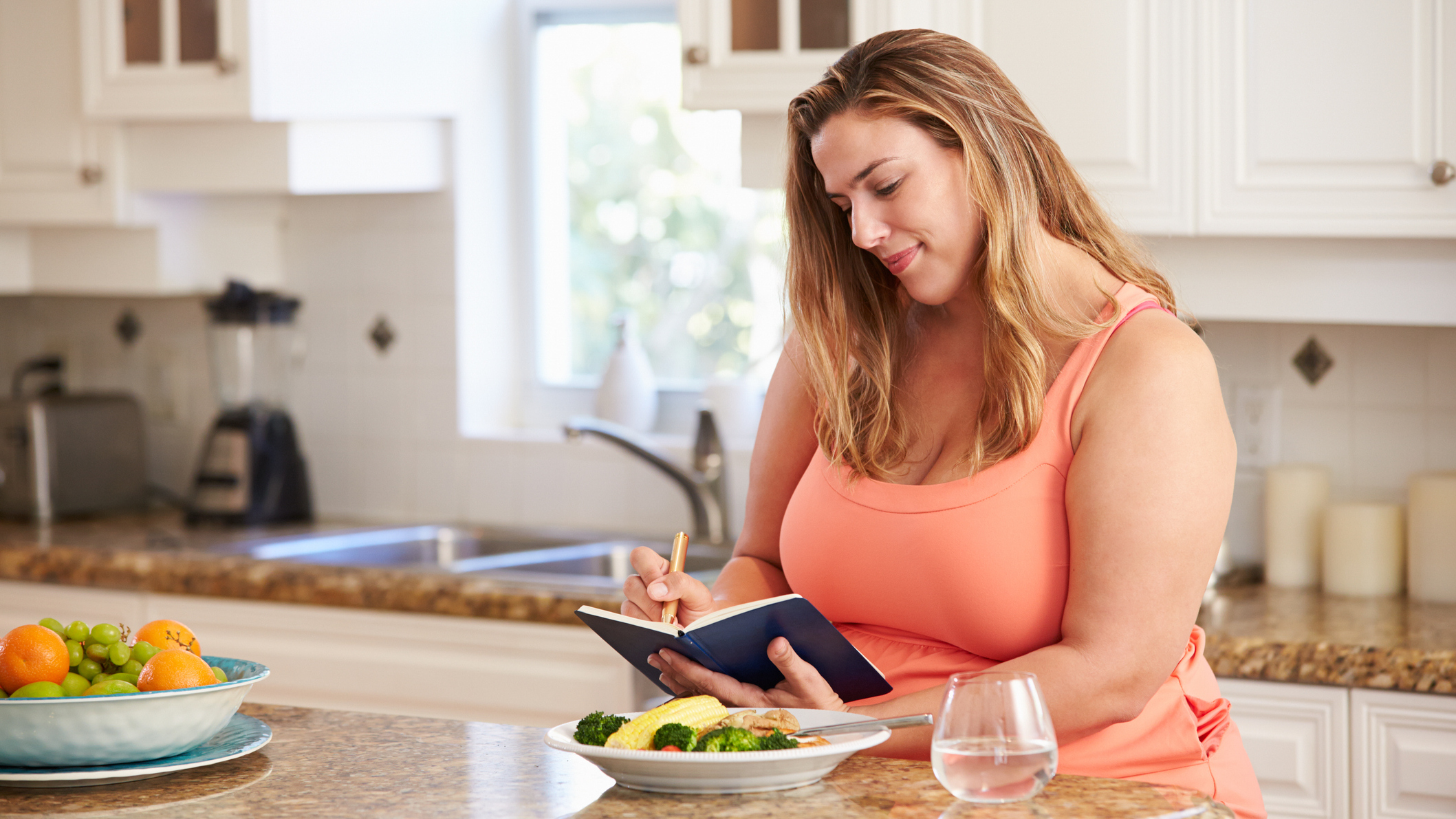
I have a social psychology PhD and I've also lost 100lbs, so it's fair to say I have a good understanding of what tricks and tools can and should be used to change your behavior.
When you're trying to lose weight or improve your health, food journaling can help you gain insight into your eating behaviors and make changes where needed. While there are many apps available where you can log food intake and track the calories you're consuming, as well macro and micronutrient content, I found that old-school food journaling with a pen and paper was more effective.
Here's why.
1. It made me stop and think
Food journaling, whether with a pen and paper or in an app is a self-monitoring technique and self-monitoring has been proven to encourage behavior change. That being said, by choosing to food journal using a pen and paper I think I gave myself a better chance of success.
I told myself that I had to write down what I was eating before I ate it, and using a paper food journal was usefully inconvenient—I don't always have a pen and paper on me in the way that I always have my phone on me.
This meant that if I wanted to eat something, I would have to go out of my way to locate my pen and journal, which required extra effort and gave me a few extra moments to consider whether or not I actually needed to eat.
That extra delay taught me that I often eat just because, rather than because my body needs food. I felt more able to encourage myself to only eat when my body was sending true need-for-fuel signals.
2. I logged more than just what and when I ate
I didn't simply write what I was eating and when I was eating it in my food journal. I made sure to take notes about why I decided to eat and how I felt after. For example, if I ate an egg and toast for breakfast I would write something like, "I had a hard workout so decided to get some carbs and protein in. I felt satiated after eating but not overly full."
I also journaled when I made less healthy food choices. I would write something like, "I went and got ice cream with a friend even though I wasn't really hungry, I felt really bloated and uncomfortable after." Seeing not only what I was eating but how I was experiencing the food I ate gave me a lot of insight into my relationship with food and my eating habits, and encouraged me to make changes in my diet and eating habits.
What's more, reading my own handwritten words rather than numbers and text in an app cast a new light on my decisions and made my ability to make changes seem more possible.







